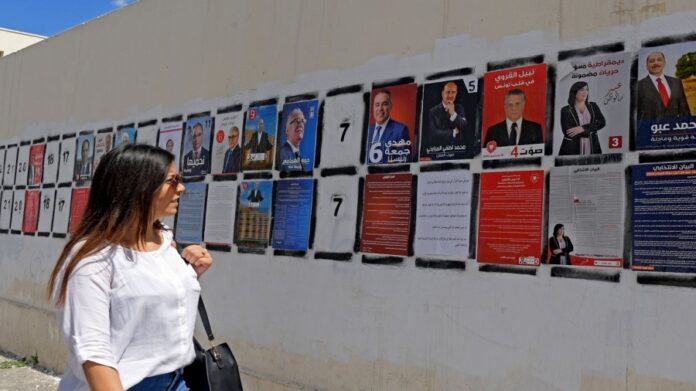Fadila Gargouri, Judge of the Court of Accounts, stated that the judicial departments of the Court of Accounts began issuing first-instance sentences regarding the violations contained in the court report related to the 2019 elections.
Gargouri explained that the repercussions of the outbreak of the Covid-19 virus and the closure of the courts on more than one occasion prevented access to final sentences regarding the violations contained in the general report on the results of monitoring the premature presidential election campaign, the legislative elections of 2019 and the financial control of parties issued at the end of 2020.
She explained that the violations contained in the report are divided into three types, including those related to the Court of Accounts, which undertakes its oversight over the resources and expenses of each candidate list, candidate or party, allocated to the campaign, and verifying the commitment to the unity of the account and the completion of its control over the resources and expenses of the single bank account.
She added that the ten central and four regional departments of the Court of Accounts pledged issues related to violations committed during the electoral campaigns for the 2019 benefits, based on the outcomes of the court’s report regarding the financing of those campaigns.
She added that the second category of violations of the electoral law, which the financial judiciary is looking into, relates in particular to financial transparency in the electoral process and exceeding the spending ceiling… indicating that state agents in the Courts of Accounts have referred these violations to the financial judiciary.
With regard to the third category of violations, the judge explained that it was within the jurisdiction of the Judicial Court, to which the Court of Accounts referred more than 30 files related to suspect electoral crimes such as political advertising and illegal financing.
She indicated that the state agents (the Public Prosecution) in these 14 departments had raised the case regarding the accounting violations and had completed the reporting stage, sealed the investigation and informed the relevant lists, giving them two months to respond until a judgment session was programmed and a preliminary decision was issued for the purpose.
Gargouri called for the laws involved in the electoral process to be revised and procedures to be simplified so that the judiciary can be effective, its judgments are delivered in a reasonable time, and accountability can take place in a timely manner.
In a previous statement, Gargouri drew attention to the difficulties faced by the court during the notification process, as a result of returning many correspondences due to the inaccuracy of the address of the person or the change of his or her residence, as well as the refusal of others to receive the correspondence, thus prolonging the time for litigation.
In a previous statement, Gargouri had drawn attention to the difficulties faced by the court during the notification process, following the return of many correspondences due to the inaccuracy of the address of the person concerned or the change of his or her residence, as well as the refusal of others to receive the correspondence, thus prolonging the litigation period.
It is noteworthy that the Court of Accounts, during its oversight work on the premature presidential elections and the legislative elections of 2019, have monitored many breaches that affected the financial accounts of the candidates, the legitimacy of resources and their areas of expenditure, non-disclosure of funding sources, the use of suspicious and unauthorized money in electoral campaigns, and non-respect of the provisions of the parties’ decree.
It was stipulated that the observed breaches would necessarily lead to depriving the list or the breaching candidate of the grant to recover electoral expenses in whole or in part, which will be done by the various governing bodies of the court.
The Court of Accounts considered that the financial calculations of presidential and legislative candidates were not always accurate, including that 347 legislative lists did not submit their accounts and did not adhere to the principle of transparency established by the electoral law, and 23 legislative lists did not commit to publishing a summary of their accounts in a daily newspaper, and the same applies to eight presidential candidates.











